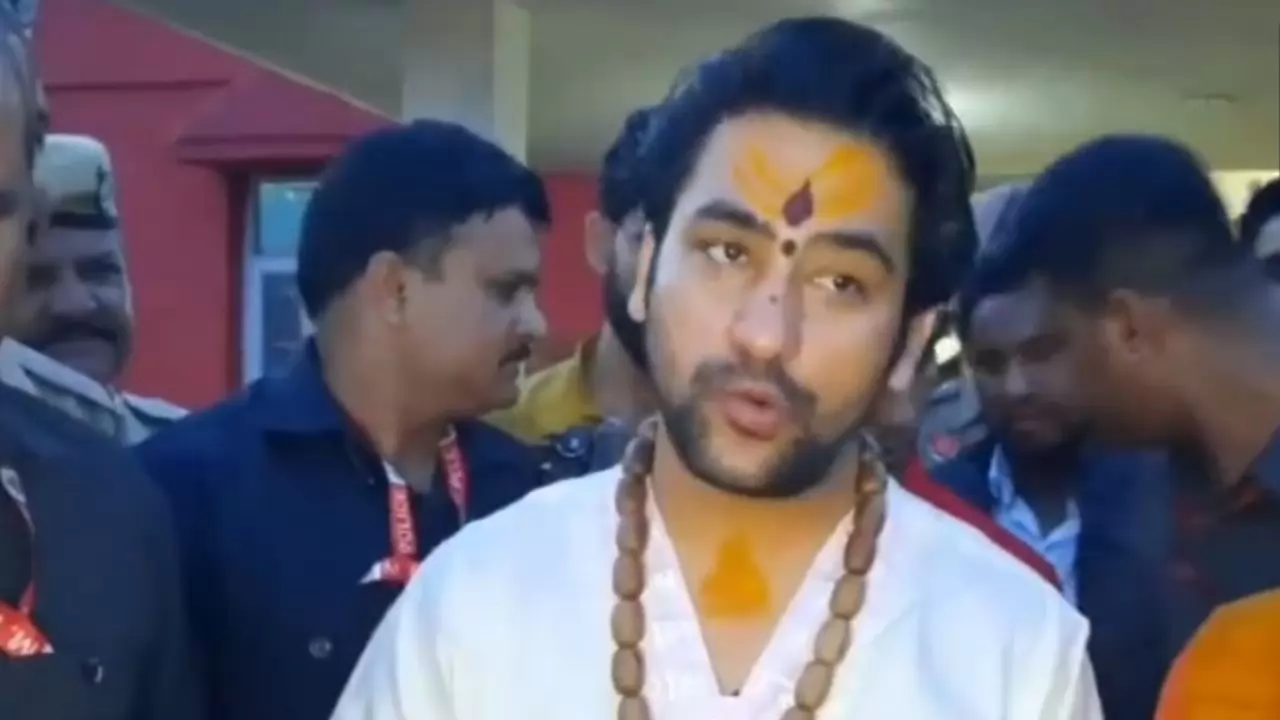
As the dates for the upcoming Maha Kumbh approach, the discussion surrounding entry policies has intensified. (X/ANI)
UP News: In a statement that has ignited debate across social media, Dhirendra Shastri, a prominent figure in Hindu religious circles, has called for a ban on non-Hindus entering the Prayagraj Maha Kumbh. The annual religious festival, which attracts millions from various faiths and backgrounds, is now at the center of a heated controversy over its accessibility.
Shastri articulated his views emphatically, asserting that individuals who do not align with Hindu beliefs or practices should not partake in the Kumbh Mela. "If you have nothing to do with Katha, Hindutva, Sanatan, or Ram, then what business do you have there?" he questioned, emphasizing the need for the event to remain a sacred space for Hindus.
प्रयागराज महाकुंभ में गैर हिन्दुओं का प्रवेश वर्जित कर देना चाहिए। तुम्हें कथा, हिन्दुत्व, सनातन, राम से लेना देना नहीं तो तुम्हारा वहां क्या काम?
— Sachin Gupta (@SachinGuptaUP) November 3, 2024
- धीरेंद्र शास्त्री pic.twitter.com/rbKSTSStRs
His remarks come in the wake of increasing discussions about the nature of religious festivals in a multicultural society. The Kumbh Mela is traditionally a gathering for Hindus to cleanse themselves in sacred rivers and seek spiritual fulfillment, drawing millions to its banks.This declaration by Shastri has sparked widespread reactions on various platforms. Advocates for inclusivity argue that religious festivals like the Kumbh Mela should welcome all individuals, regardless of their faith, to promote understanding and unity among different cultures. Conversely, some segments of the Hindu community resonate with Shastri's sentiments, viewing them as a necessary protection of their spiritual heritage.
Critics argue that such exclusionary policies could alienate non-Hindus and disrupt the communal harmony that festivals are meant to foster. "Religious gatherings should celebrate diversity rather than restrict it," said one interfaith leader.
As the dates for the upcoming Maha Kumbh approach, the discussion surrounding entry policies has intensified. Organizers are now faced with the challenge of balancing religious significance with the realities of modern society. In response to Shastri’s comments, several officials have indicated that discussions will be held to consider the implications of his statements and how they might affect participation in the festival.
Dhirendra Shastri's declaration has undeniably opened a Pandora's box of discussions regarding religion, inclusivity, and the role of festivals in contemporary India. As the Maha Kumbh approaches, it remains to be seen how these discussions will shape the festival's future and its message of unity.





Copyright © 2026 Top Indian News
